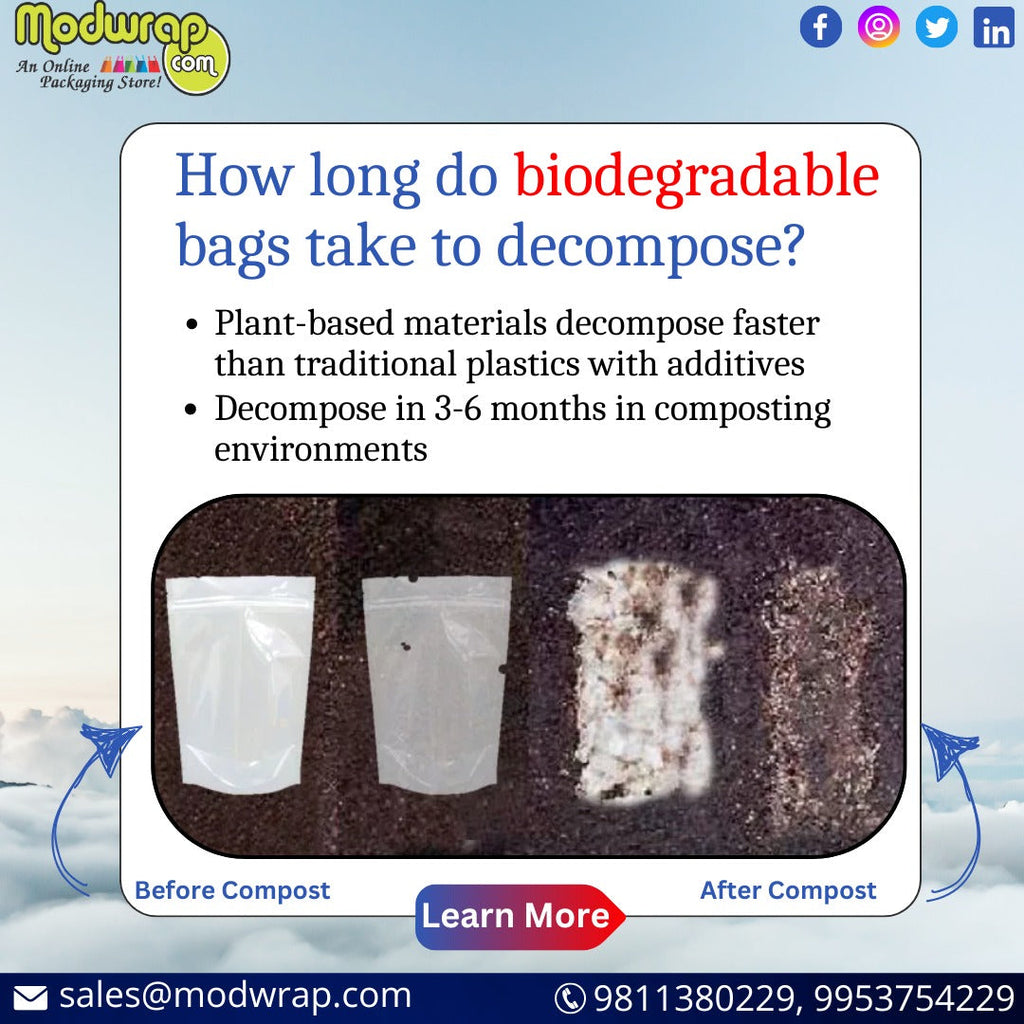How Long Do Biodegradable Bags Take to Decompose?

Biodegradable bags are often touted as an eco-friendly alternative to traditional plastic bags, but the time they take to decompose can vary significantly based on several factors. Understanding these timelines and conditions is essential for making informed choices about their use.
Compostable Bags
Compostable bags, made from plant-based materials like cornstarch decompose relatively quickly. In a composting environment, which provides the necessary heat, moisture, and microbial activity, these bags can break down within 3 to 6 months. This rapid decomposition makes them a suitable option for organic waste disposal, contributing to nutrient-rich compost without leaving harmful residues.
Biodegradable Plastic Bags
Biodegradable plastic bags, which often include traditional plastics with additives to accelerate breakdown, have a more variable decomposition time. Depending on environmental conditions, these bags can take anywhere from a few months to several years to decompose. In optimal conditions with adequate exposure to sunlight, oxygen, and moisture, they break down faster. However, in landfills where such conditions are lacking, the process slows significantly.
Factors Influencing Decomposition
The decomposition rate of biodegradable bags is influenced by several factors:
Environmental Conditions:
High temperatures, sufficient moisture, and microbial presence are crucial for faster decomposition.
Material Composition:
Pure plant-based materials decompose more rapidly than traditional plastics with additives.
Exposure to Elements:
Sunlight (UV radiation) and oxygen accelerate the breakdown process, whereas minimal exposure in landfills slows it down.
In conclusion, while compostable bags offer a quicker and more complete decomposition, biodegradable and oxo-degradable bags vary widely in their breakdown timelines. Choosing the right type of bag depends on the intended disposal method and environmental impact considerations.


